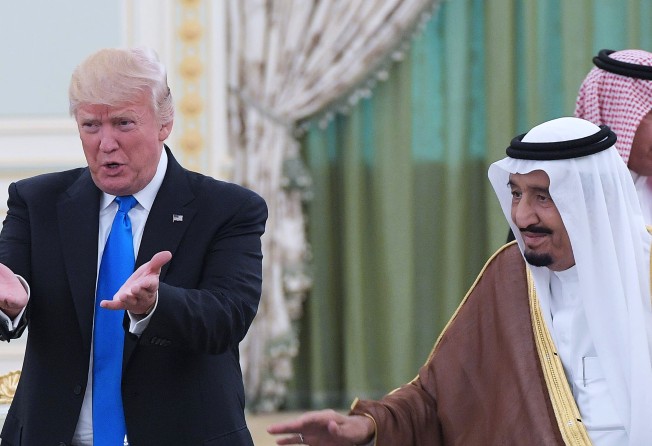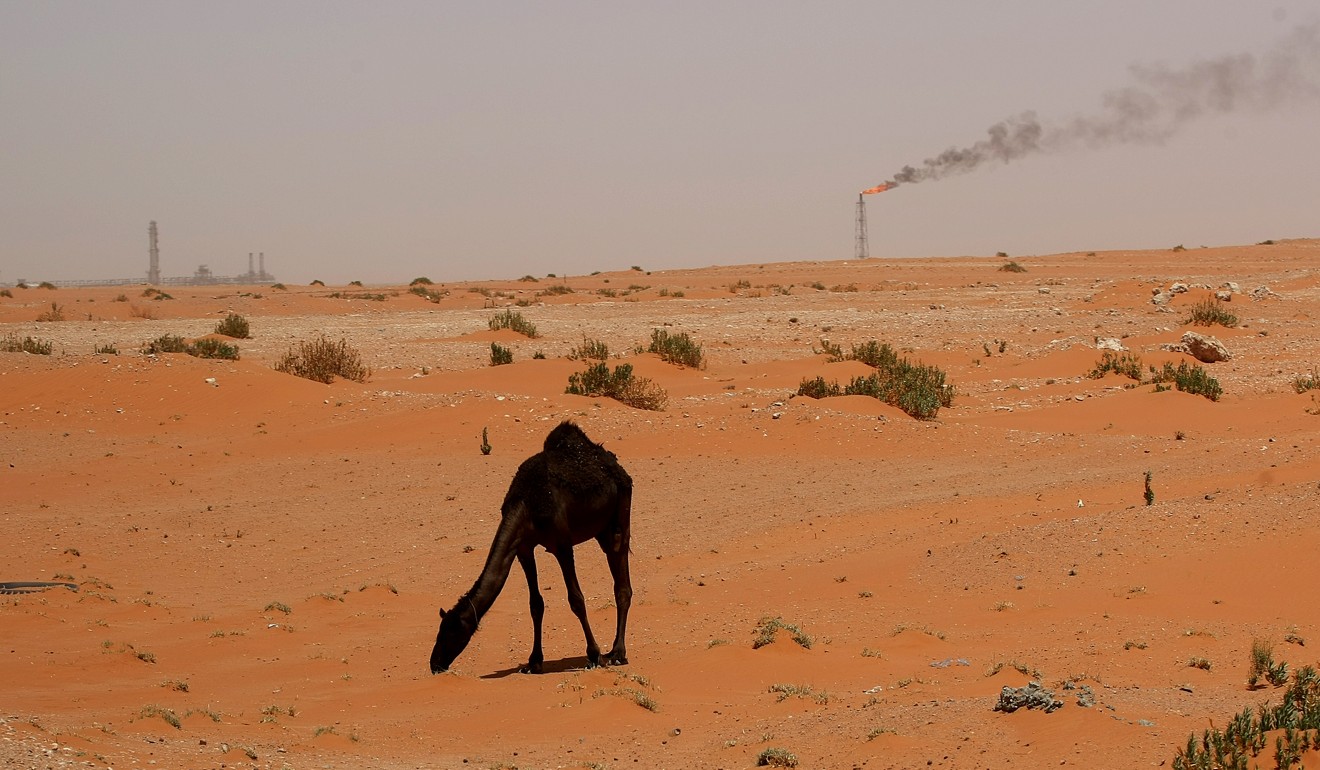Just spoke to King Salman of Saudi Arabia and explained to him that, because of the turmoil & disfunction in Iran and Venezuela, I am asking that Saudi Arabia increase oil production, maybe up to 2,000,000 barrels, to make up the difference...Prices to high! He has agreed!
— Donald J. Trump (@realDonaldTrump) June 30, 2018
White House walks back Donald Trump’s tweet claiming Saudi Arabia will boost oil production to lower prices
Oil prices have edged higher as the Trump administration has pushed allies to end all purchases of oil from Iran following the US pulling out of the nuclear deal between Tehran and world powers

US President Donald Trump’s administration has backed off an assertion he made hours earlier indicating he persuaded Saudi Arabia to effectively boost oil production to its maximum capacity, which would have threatened to blow up a fragile truce agreed by Opec and inflamed the Saudi-Iran rivalry.
“Just spoke to King Salman of Saudi Arabia and explained to him that, because of the turmoil & disfunction in Iran and Venezuela, I am asking that Saudi Arabia increase oil production, maybe up to 2,000,000 barrels, to make up the difference … Prices to high! He has agreed!,” Trump said on Twitter Saturday.
Later, the White House released a more cautious statement saying “the two leaders reaffirmed their dedication to a healthy and stable global energy market for the benefit of all nations.”
“The two leaders agreed that balancing the global oil market is essential to ensure access to reliable and affordable energy to people everywhere,” it said.
“In response to the president’s assessment of a deficit in the oil market, King Salman affirmed that the kingdom maintains a two million barrel per day spare capacity, which it will prudently use if and when necessary to ensure market balance and stability, and in coordination with its producer partners, to respond to any eventuality.”
The Saudi Press Agency said Trump had called Salman and the two highlighted “the necessity of doing efforts to preserve the stability of the oil market and the global economy growth.”

They also discussed “efforts of the producing countries to cover any possible shortage in supplies,” the agency said in its brief report.
Saudi Arabia is the world’s biggest oil exporter and has usually kept at least 1.5 million to two million barrels per day of spare capacity, according to the United States Energy Information Administration.
But oil officials cited by The Wall Street Journal said it is debatable whether the kingdom would be able to raise output by the amount Trump suggested.
“This is just simply not doable,” said one senior Saudi oil official cited by the Journal.
Trump has repeatedly lashed out at Opec on Twitter in recent months, piling pressure on Riyadh, a major ally, to boost output as he hopes for lower pump prices before midterm congressional elections in November.
His latest comments come a week after ministers from the Organisation of the Petroleum Exporting Countries – of which Saudi Arabia is the major member – agreed to raise output from July.
Non-Opec member Russia on June 23 also backed the effort, capping a week of tense diplomacy for the grouping that averted a damaging rift between arch foes Iran and Saudi Arabia.
The ministers announced they would ramp up oil production by around one million barrels a day from July.
The talks centred on whether to amend an 18-month-old supply-cut deal between Opec members and allied countries, including Russia, that has cleared a global oil glut and lifted crude prices.
The unprecedented supply-cut pact has lifted crude prices from below US$30 a barrel in early 2016 to around US$70.
Saudi Arabia, backed by non-member Russia, had argued strongly in favour of increasing production as grumbles in major consumer countries like the United States, India and China have grown about higher prices.
Iran opposed any changes to the original production-cut deal at a time when its oil industry is facing renewed sanctions over Trump’s decision to quit the international nuclear deal with Tehran.
In the end, both sides were able to save face.
Iran has accused Trump of trying to politicise Opec and said it was US sanctions on Iran and Venezuela that helped push up prices.
Saudi Arabia was producing around 10 million barrels of crude a day in May, according to Opec.
Bloomberg, Agence France-Presse